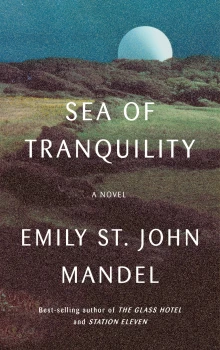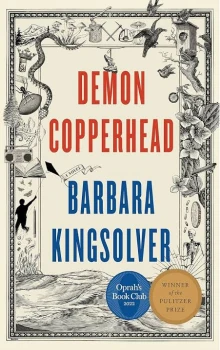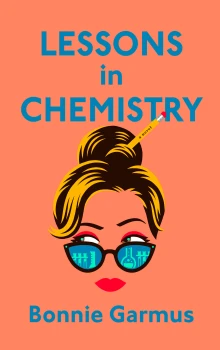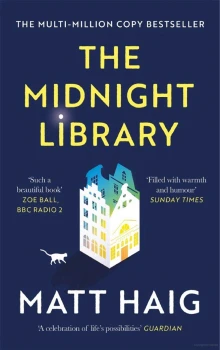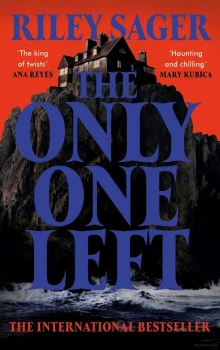1
“I’d like to show you something strange.” The composer, who was famous in an extremely limited, niche kind of way, i.e., in zero danger of being recognized on the street but most people in a couple of smallish artistic subcultures knew his name, was obviously uncomfortable, sweating as he leaned in close to his mic. “My sister used to record videos. This next one is a video of hers that I found in storage, after her death, and it’s got some kind of glitch in it that I can’t explain.” He was quiet for a moment, adjusting a knob on his keyboard. “I wrote some music to go with it, but right before the glitch, the music will go silent, so we can appreciate the beauty of technical imperfection.”
The music began first, a dreamlike swelling of strings, suggestions of static just under the surface, and then the video: his sister had walked with her camera along a faint forest path, toward an old-growth maple tree. She stepped under the branches and angled her camera upward, into green leaves flashing in the sunlight, in the breeze, and the music stopped so abruptly that the silence seemed like the next beat. The beat after that was darkness: the screen went black, just for a second, and there was a brief confusion of overlapping sounds—a few notes of a violin, a dim cacophony like the interior of a metropolitan train station, a strange kind of whoosh that suggested hydraulic pressure—then in a heartbeat the moment was over, the tree was back, and there was some chaotic camerawork as the composer’s sister seemingly looked around wildly, forgetting that she had the camera in her hand.
The composer’s music resumed, that video shifting seamlessly into one of his newer works, this one involving a video that he’d shot himself, five or six minutes of an aggressively ugly street corner in Toronto, but with orchestral strings laboring to produce the idea of hidden beauty. The composer was working rapidly, playing sequences of notes on keyboards that emerged a beat later as violin music, building the music up in layers as the Toronto street corner ticked by on the screen over his head.
In the front row of the audience, Mirella Kessler was in tears. She’d been friends with the composer’s sister—Vincent—and hadn’t known that Vincent had died. She left the theater soon after, and spent some time in the ladies’ lounge, trying to pull herself together. Deep breaths, a fortifying layer of makeup. “Steady,” she said aloud, to her face in the mirror. “Steady.”
She’d come to this concert in the hope of speaking to the composer, in order to find out Vincent’s whereabouts. There were certain questions she’d wanted to ask. Because in a version of her life so distant that it seemed now like a fairy tale, Mirella had had a husband—Faisal—and she and Faisal had been friends with Vincent and with Vincent’s husband, Jonathan. There were several magnificent years, years of travel and money, and then the lights went out. Jonathan’s investment fund turned out to be a Ponzi scheme. Faisal, unable to live in the face of financial ruin, took his own life.
Mirella had never spoken with Vincent again after that, because how could Vincent not have known? But a decade after Faisal’s death she was at a restaurant with Louisa, her girlfriend of a year, and the first shiver of doubt crept in.
They were having dinner at a noodle place in Chelsea, and Louisa had been telling her about an unexpected birthday card from her aunt Jacquie, whom Mirella had never met because at any given moment half of Louisa’s family was feuding. “Jacquie’s kind of awful most of the time,” Louisa said, “but she came by it honestly, in my opinion.”
“Why, what happened to her?”
“I never told you this story? It’s epic. Her husband had a secret second family.”
“Seriously? What a soap opera.”
“It gets better.” Louisa leaned forward to deliver the punch line: “He parked the second family across the street.”
“What?”
“Yeah, it was amazing. Okay,” Louisa said, “picture this scene. Hedge-fund guy, Park Avenue apartment, nonworking wife, two kids in private school. Peak Upper East Side. Then one day Aunt Jacquie checks the Amex statement, and there’s a tuition payment to a private school that neither of her children attend. So she hands the statement to Uncle Mike, like, ‘What’s this crazy charge,’ and apparently he almost has a heart attack on the spot.”
“Go on.”
“So my cousins, at the time they’re in like eighth grade and ninth grade, something like that, but turns out Uncle Mike’s also the father of the kindergartner across the street. He put the five-year-old’s tuition payment on the wrong Amex.”
“Wait, literally across the street?”
“Yeah, the buildings face each other. The doormen at both addresses probably knew for years.”
“How could she not know?” Mirella asked, and just like that the past had swallowed her whole and she was talking about Vincent.
“A man who works long hours can hide anything,” Louisa said. She was still talking about her aunt, and hadn’t noticed that Mirella was elsewhere. “Lucky for you I don’t work.”
“Lucky for me,” Mirella echoed, and kissed Louisa’s hand. “What a crazy story.”
“It’s the across-the-street thing that gets me,” Louisa said. “That geography was brazen.”
“I can’t decide if it’s very lazy or very efficient.” Mirella was pretending to still be there in the restaurant with Louisa, eating noodles, but she was far away. Vincent had sworn she hadn’t known about her husband’s crimes, in deleted voicemails and in a deposition.
“Mirella.” Louisa’s hand rested gently on Mirella’s wrist. “Come back.”
Mirella sighed, and set down her chopsticks.
“Did I ever tell you about my friend Vincent?”
“The wife of the Ponzi scheme guy?”
“Yeah. That story about your aunt made me think of her. Did I tell you I saw her once, after Faisal died?”
Louisa’s eyes widened. “No.”
“It was a little over a year after his death, so March or April of 2010. I went into a bar with some friends, and Vincent was the bartender.”
“Oh my god. What did you say to her?”
“Nothing,” Mirella said.
She hadn’t recognized her at first. In the days of money, Vincent had had long wavy hair like all the other trophy wives, but in the bar her hair was cut very short, and she wore glasses and no makeup. In the moment the disguise had struck Mirella as vindication—of course you’re trying to hide, you monster—but now a certain ambiguity had entered the scene: a reasonable alternate explanation for the short hair/glasses/no makeup was that one or another of her husband’s defrauded investors could walk in at any moment. Manhattan was lousy with defrauded investors in those days.
“I pretended not to know her,” she said now, to Louisa. “As revenge, I guess. It wasn’t my best moment. She always said she didn’t know what Jonathan had been doing, but I just thought, Of course you knew. How could you possibly not have known. You knew and you let Faisal lose everything and now he’s dead. That was all I could think about in those days.”
Louisa nodded. “Stands to reason that she’d know,” she said.
“But what if she didn’t?”
“Is it plausible that she didn’t know?” Louisa asked.
“I didn’t think so, at the time. But you’re telling me this story about your poor Aunt Jacquie, and, well, if you can hide a five-year-old, you can hide a Ponzi scheme.”
Louisa held Mirella’s hands across the table. “You should talk to her.”
“I have no idea how to find her.”
“It’s 2019,” Louisa said. “No one’s invisible.”
But Vincent was. In those days Mirella was working as a receptionist at a high-end tile showroom near Union Square. It was the kind of place that required few customers, because when people spent money here, they spent tens of thousands of dollars. The morning after her dinner with Louisa, whiling away a silent hour behind a reception desk the size of a car, Mirella searched for Vincent. She tried Vincent’s husband’s surname first. A search for “Vincent Alkaitis” produced old society photos, some with Mirella in them—parties, galas, etc.—and also pages of Vincent at her husband’s sentencing hearing, blank-faced, in a gray suit, and absolutely nothing else. The most recent images were from 2011. “Vincent Smith” turned up dozens of different people, mostly men, none of them the Vincent she was looking for. She couldn’t find Vincent on social media, or anywhere else.
She leaned back in her chair, frustrated. High over her desk, a light was buzzing. Mirella wore a great deal of makeup at work, and when she was tired in the afternoons, sometimes her face felt heavy. Out on the white-tiled prairie of the sales floor, a lone sales rep was walking a customer through every conceivable color of the company’s signature composite material, which looked like stone but wasn’t.
Vincent’s parents were long dead, but she’d had a brother. Dredging up the brother’s name required a deep dive into memory, which was a place Mirella generally tried to avoid. She glanced at the door to make sure no customers were approaching, then closed her eyes, took two deep breaths, and typed “Paul Smith + composer” into Google.
This was how she found herself at the Brooklyn Academy of Music four months later, waiting outside the stage door for Paul James Smith. She’d been hoping he could tell her how to find Vincent. But now Vincent was dead, apparently, which meant it was going to be a very different conversation. The stage door was on a quiet residential street. Mirella paced while she waited, not far, just a few feet in either direction. It was late January but unseasonably warm, well above freezing. Only one other person waited with her: a man of about her own age, mid-thirties, in jeans and a nondescript blazer. His clothes were too big. He nodded to her, she nodded back, and they settled into an awkward wait. Some time passed. A couple of staffers left without looking at them.
Then finally Vincent’s brother emerged, looking a little haggard, although in fairness no one looked especially healthy in the orange glow of the streetlights here.
“Paul—” Mirella said, at the same moment that the other man said, “Excuse me—” and then they exchanged apologetic glances and fell silent, Paul glancing back and forth between them. A third man was approaching rapidly, a pale guy in a fedora and trench coat.
“Hello,” Paul said, in a general way, to all of them.
“Hello!” said the newcomer. He took off his hat and revealed himself to be mostly bald. “Daniel McConaghy. Huge fan. Great show.”
Paul gained an inch of height and a few watts of radiance as he stepped forward to shake the man’s hand. “Well, thank you,” he said, “always great to meet a fan.” He looked around expectantly at Mirella and the guy in the oversized clothes.
“Gaspery Roberts,” the oversized-clothes guy said. “Wonderful show.”
“Hope you’re not offended,” the man in the fedora said, “I don’t think your hands are dirty or anything, I’ve just gotten really into Purell since this thing in Wuhan hit the news.” He was rubbing his hands together, with an apologetic smile.
“Fomites aren’t a major mode of transmission with Covid-19,” Gaspery said. Fomites? Covid-19? Mirella had never heard either term, and the other two were frowning too. “Oh, right,” Gaspery said, seemingly to himself, “it’s only January.” He snapped back into focus. “Paul, could I maybe buy you a drink and ask you a couple quick questions about your work?” He had a faint accent that Mirella couldn’t place.
“That sounds awesome,” Paul said. “I could definitely use a drink.” He turned to Mirella.
“Mirella Kessler,” she said. “I was friends with your sister.”
“Vincent,” he said quietly. She couldn’t quite parse his expression. Sadness but also a flash of something furtive. For a moment no one spoke. “Hey,” he said, with forced cheer, “should we all get a drink?”
They wound up at a little French restaurant a few blocks away, across the street from a park that looked from Mirella’s vantage point like a hill barely contained by a high brick retaining wall. She didn’t know Brooklyn at all so everything was mysterious here, no points of reference beyond a vague notion that if she were to step outside the restaurant door, the spires of Manhattan would be somewhere to the left. The initial shock of the news of Vincent’s death had faded a little, replaced by a limitless exhaustion. She was sitting next to the guy in the fedora, whose name she had forgotten, and across from Gaspery, who sat next to Paul. The fedora was going on and on about Paul’s brilliance, his obvious influences, artistic debt to Warhol, etc.; he’d loved Paul’s work from the beginning, that groundbreaking experimental collaboration with the video artist—what was his name again?—at Miami Basel, what a leap it had been when Paul suddenly started using his own videos instead of collaborating with others, and so on and so forth. Paul was glowing. He loved being praised, but who doesn’t. She was facing the window, and her gaze kept drifting over Gaspery’s shoulder to the park. If there were an earthquake and the retaining wall broke, would the park spill across the street and bury the restaurant? She returned her attention to the table when she heard Vincent’s name.
“So your sister, Vincent, she’s the one who filmed that strange video in your performance tonight?” This was Gaspery, his name memorable because she hadn’t heard it before.
Paul laughed. “Name one of my videos that isn’t strange,” he said. “I did an interview last year, with this guy who kept calling me sui generis, and at a certain point I was like, ‘Guy, you can just say strange. Strange, weird, or eccentric, take your pick.’ Interview went a whole lot better after that, let me tell you.” He laughed loudly at his own anecdote, and the fedora laughed too.
Gaspery smiled. “I meant that video with the forest path,” he persisted. “With the darkness, the strange sounds.”
“Oh. Yeah. That was Vincent’s. She said I could use it.”
“Was it filmed near where you grew up?” Gaspery asked.
“You’ve done your research,” Paul said approvingly.
Gaspery inclined his head. “You’re from British Columbia, aren’t you?”
“Yeah. Tiny little place called Caiette, northern Vancouver Island.”
“Oh, near Prince Edward Island,” the fedora said confidently.
“Didn’t really grow up there, though,” Paul said, apparently not hearing this. “Vincent grew up there. Same dad, different moms, so I was just there summers and every second Christmas. But yeah, that’s where the video was filmed.”
“That…that moment on the video,” Gaspery said, “that anomaly, for lack of a better word. Did you ever see anything like it in person?”
“Only on LSD,” Paul said.
“Oh,” the fedora said, brightening suddenly, “I didn’t realize there was a psychedelic influence on your work.” He leaned forward, in a confiding way. “I went pretty deep with psychedelics, myself. Once you get into heroic doses, you start to have certain realizations about the world. So much is an illusion, right?”
Gaspery shot him a troubled look. Mirella watched him while she waited for an opportunity to ask about Vincent. Gaspery seemed foreign in a way that she couldn’t quite parse.
“And then once you grasp that,” the fedora was saying, “it all just falls into place, right? Buddy of mine, he was struggling to quit cigarettes. Guy must’ve tried six or eight times. Not happening. Couldn’t do it. Then one day he takes LSD, and bam. He calls me up the next evening, says, ‘Dan, it’s a miracle, I haven’t even wanted a cigarette today.’ I tell you, it was—”
“What happened to her?” Mirella asked Paul. She knew she was being rude but she didn’t care, she was sitting there growing older by the minute, sinking into grief, and she wanted to know what had happened to her friend so she could leave these people.
Paul blinked at her, as if he’d forgotten she was there.
“She fell off a ship,” he said. “About a year and a half—no, two years ago. It was two years last month.”
“What kind of ship? Was she on a cruise?”
The fedora was glowering at his drink, but Gaspery was listening to the conversation with great interest.
“No, she was…I don’t know how much you know about what happened to her in New York,” Paul said, “that crazy thing with her husband, where it turned out he was a crook—”
“My husband was an investor in his Ponzi scheme,” Mirella said. “I know all about it.”
“Jesus,” Paul said. “Did he—”
“Wait,” the fedora said, “are we talking about Jonathan Alkaitis?”
“Yes,” Paul said. “You know the story?”
“That crime was insane,” the fedora said. “What was the size of the fraud, twenty billion dollars? Thirty? I remember where I was when that story broke. Call comes in from my mom, turns out my dad’s retirement savings were—”
“You were telling me about the boat,” Mirella said.
Paul blinked. “Right. Yeah.”
“You have a bit of an interrupting problem,” the fedora said, to Mirella. “No offense.”
“No one’s talking to you,” Mirella said. “I asked a question of Paul.”
“Yeah, so Vincent and I, we were out of touch for a few years,” Paul said, “but after Alkaitis abandoned her and fled the country, I guess Vincent got some training and certifications and went to sea as a cook on a container ship.”
“Oh,” Mirella said. “Wow.”
“Sounds like an interesting life, right?”
“What happened to her?”
“No one really knows,” Paul said. “She just disappeared from the ship. Seems like it was an accident. No body.”
Mirella didn’t know she was going to cry until she felt tears spilling down her face. All of the men at the table looked acutely uncomfortable. Only Gaspery thought to pass her a napkin.
“She drowned,” she said.
“Yeah. I mean, it seems like it. They were hundreds of miles from land. She disappeared in bad weather.”
“Drowning was the thing she was most scared of.” Mirella dabbed at her face with the napkin. In the quiet, the small noises of the restaurant swelled around them: a couple arguing softly in French at a nearby table, clattering from the kitchen, the restroom door closing.
“Well,” Mirella said, “thanks for telling me. And thank you for the drink.” She didn’t know who was paying for the drink, but she knew it wasn’t her. She rose and walked out of the restaurant without looking back.
Outside, she felt directionless. She knew she should get in an Uber and go home, just go home and sleep and not do anything stupid like go for a walk after dark in an unfamiliar borough, but Vincent was dead. Mirella would find somewhere to sit for a few minutes, she decided, just to collect her thoughts. The neighborhood seemed fairly tame to her and it wasn’t that late, also she was afraid of nothing, so she crossed the street and entered the park.
The park was quiet, but by no means unoccupied. People moved through pools of light, couples with arms around one another’s shoulders and small groups of friends, a woman singing to herself. She sensed free-floating menace in the air, but it wasn’t directed toward her. How could Vincent be dead? It was impossible, everything about it. She found her way to a bench and put on her headphones so she could pretend not to hear if anyone spoke to her, and willed herself toward invisibility. She would sit here for a while, she would sit here and think about Vincent, or sit here until she could find a way to stop thinking about Vincent, then she would go home and go to bed. But her thoughts shifted toward Jonathan, Vincent’s former husband, living out his life in a luxury hotel in Dubai. The thought of him being there, wherever he was, ordering room service and asking to have the sheets changed and swimming in the hotel pool—while Vincent was dead—was an abomination.
A man walked in front of her and sat on the bench. She turned and it was Gaspery, so she took off the headphones.
“Forgive me,” he said, “I saw you go into the park, and it’s not a bad neighborhood, but—” He didn’t finish the thought, because he didn’t have to. For a woman alone in a park after nightfall, every neighborhood is a bad neighborhood.
“Who are you?” Mirella asked.
“I’m a kind of investigator,” Gaspery said. “You’ll think I’m crazy if I get into the details.”
There was something familiar about him, it seemed to her now, something about his profile that rang a distant bell, but she couldn’t quite place him.
“What are you investigating?”
“Look, I’ll be frank with you, I have no interest in Mr. Smith or his art,” Gaspery said.
“That makes two of us.”
“But I’m interested in, well, in a certain kind of anomaly, like that moment in the video when the screen goes black. I waited outside the stage door to ask him about it.”
“It is a strange moment.”
“Can I ask, did your friend ever talk about that moment? Since it was her video, after all.”
“No,” Mirella said, “not that I remember.”
“Stands to reason,” Gaspery said. “She would’ve been quite young when she shot that video. The things we see when we’re young, sometimes they don’t stay with us.”
The things we see when we’re young.
“I think I’ve seen you before,” Mirella said. She was looking at his face in profile in the dim light. He turned to look at her, and she was certain of it. “In Ohio.”
“You look like you’ve seen a ghost.”
She rose from the bench. “You were under the overpass,” she said. “In Ohio, when I was a kid. That was you, wasn’t it?”
He frowned. “I think you’re mistaking me for someone.”
“No, I think it was you. You were under the overpass. Right before the police came, before you were arrested. You said my name.”
But he looked genuinely confused. “Mirella, I—”
“I have to go.” She fled, not quite running, but walking in the flying unstoppable way that she’d perfected over years in New York City, darting out of the park, back down to the street, where in the fishbowl glow of the French restaurant the fedora and Vincent’s brother were still deep in conversation. Gaspery hadn’t followed her. She was grateful that he was wearing a white shirt; he would all but shine in the dark. She plunged into the shadows of a residential street. She flew past old brownstones standing beautiful in the streetlights, iron fences, old trees; faster and faster, toward the bright lights of a commercial avenue up ahead, where a yellow cab was gliding across the intersection like a chariot, like some kind of miracle—a yellow cab in Brooklyn!—and she hailed it and climbed aboard. A moment later the taxi was speeding over the Brooklyn Bridge, Mirella crying quietly in the backseat. The driver glanced at her in the rearview mirror, but—oh, the grace of strangers in this crowded city!—said nothing.
